- Home
- Warhammer 40K
Spear of the Emperor - Aaron Dembski-Bowden Page 28
Spear of the Emperor - Aaron Dembski-Bowden Read online
Page 28
‘Hear me out first,’ argued Brêac.
‘My brother, the decision is already made. I am not here to listen to you, I am here so you may listen to me.’
The Spear lord spoke through gritted teeth. ‘But we can draw our defences away from Nemeton, and–’
The Warlord cleared his throat. That was all it took to silence the respected and mighty Lord of the Third Warhost. It was done without anger, with visible sympathy, and all eyes returned to Ekene’s scarred face. The Warlord spoke his next words with measured gravity, knowing the true weight of them better than any other soul present.
‘Brêac, my brother. Your loyalty breeds an ache in my chest, and I love you for it. But I will not have Nemeton and half the Veil put at risk for the chance we can hold Elysium. Even if we hold it, what will be left of the Armada?’
Silence. Not absolute silence, for all across the bridge armour still hummed and joints still purred and robes still rustled. But it was as close to silence as a thousand men and women can come.
‘What are you saying?’ asked Brêac.
‘I am saying nothing you do not already know in your heart.’ Ekene nodded to the slowly turning world composed of trembling light. ‘Elysium has always lain within the Exilarchy’s reach. We knew this day would come. Now is the time for us to face reality, not cling to our rage.’
‘No.’ Morcant stared wide-eyed at his Warlord, helpless in his denial. ‘No. The Armada will crush whatever is coming. We. Can. Hold.’
Ekene was braced for this. ‘Elysium cannot be defended, Morcant of the Arakanii. And more importantly, I will not let you try.’
‘You coward,’ the battleguard snapped. ‘You dare give in like this? We can protect you!’
Ekene met this fury with fire in his eyes and serenity on his lips. ‘This is not about you, my brother. It is not about what you can or cannot do. It is about the Veil. Elysium is one world. Just one world. I will not sacrifice twenty planets and vast reaches of territory for a single world. Not even the world of my birth.’
Throughout the chamber, Spears warriors were turning to their Lions brethren. Brêac let out a slow breath.
‘Ekene…’
The Warlord raised a hand to forestall yet more prideful protests. ‘Brêac, please. You and your Spears have bled in rivers, shouldering the burdens of three Chapters these last decades. You are not seeing this with a tactician’s clarity. Instead, you see it as a loyal brother, all heart and no rationality. You see this as your failure, do you not? If Elysium falls, the Spears have failed, after all this time, to protect their wounded brothers.’
Brêac said nothing. The truth was etched, damningly clear, across his face.
‘That is noble of you,’ Ekene said. ‘Noble and worthy and every Lion thanks you for it. But we are not children, to be protected from all harm. Death is coming with the Storm Tide. This much we know. Now is the time to plan for what will come, and not mourn what we wish would be.’
Brêac tried one last time. ‘Zvarin,’ he appealed to the Black Templar at Ekene’s side.
‘The decision is made,’ the old knight said at once. ‘Though I commend you for your loyalty and zeal, Spear. I expected nothing less from you.’
‘He warned me,’ Ekene said with a half-smile, ‘that you would be difficult to convince. As if I could not have guessed, myself.’
With those words, a hush descended on the command deck once more. Ekene took advantage of it.
‘We will gather as much of the Armada as we can spare without ceding territory to the Exilarchy. No current campaigns will be abandoned. No worlds will be left undefended.’
‘This is the death of your Chapter,’ Brêac said at last.
‘That may be true,’ Ekene admitted. ‘But there is hope yet.’
‘Hope?’ Morcant narrowed his eyes. ‘Why gather any of the Armada if you don’t intend to fight for Elysium?’
Amadeus grasped it before anyone else.
‘Evacuation.’ With the single word, all eyes settled on my master.
‘As the Mentor says,’ Ekene confirmed. ‘We will evacuate as much of the population as we are able in the time that remains. We cannot defend our world, but we may be able to preserve some of our culture.’
Evacuating a city is a process of infinite complexity and punishing slowness. I’ve seen it with my own eyes, and seen it fail as often as I’ve seen it attempted. Evacuating a whole world is a feat of supreme effort that defies words. Truthfully, it simply can’t be done. Ekene and his Lions knew that, and I knew what they really meant. Their civilisation was doomed, but their culture might yet survive in bands of refugees. Crucially for the Chapter, future generations of children might survive to become Lions.
Hope is often a slender thread, but that never stops anyone reaching for it.
Ekene looked to Brêac, for the first time seeming reserved. ‘If we save enough of our people, there are worlds elsewhere… Worlds that lie deeper in the Veil. Places we might settle.’
‘Nemeton,’ said Brêac.
‘That would create significant tensions,’ Ekene said guardedly, ‘and no few difficulties with the population displacement. But if there were enough land…’
‘Bring them to Nemeton.’ Brêac was adamant.
‘We have considered it,’ the Warlord admitted. ‘I am drafting a petition to offer the High King. If the Swordbearer allows it, it is a tempting possibility.’
‘Arucatas won’t refuse you.’
‘Your confidence girds me, my brother. May I ask, will the Hex sail to Elysium? Will you protect the evacuation convoys?’
Brêac offered his hand. ‘You insult us by even asking, Ekene. We’ll sail at once.’
Ekene grinned and took the offered hand.
Then his head rolled forward, and his body toppled back.
5
If you’re reading these words and have never seen a Space Marine in the flesh, I hope my efforts so far have managed to capture some of the unreal speed with which they move in battle. If you’re reading these words and you are one of the Adeptus Astartes, then try to contextualise the speed with which the rest of us act and react to the world.
I used the word unreal, and it’s the best match for what they do. Over a hundred of them stood together in the command deck that day; a hundred transhuman warriors with preternatural reflexes and cognitive senses that processed information faster than unaltered biology allowed.
When I relate this now, it’s with the clarity of hindsight, analysis and data-spooled memories. When it happened then, it took place in the time it takes to blink. All that transhuman speed and power meant absolutely nothing.
6
Ekene’s head tumbled from his shoulders and his headless body began to fall. The Warlord’s blood flecked Brêac’s armour and dappled across his face.
Warriors tore weapons free from holsters and scabbards. Lions and Spears roared in the same breath. I screamed something that may have been a useless denial or an equally worthless warning. I know I shouted Kartash’s name more than once.
None of it mattered. Shock had stolen the first second from all of us, and the first second was the only one that counted.
A chorus of explosives detonated around the central dais, blasting meat and bionics and bloody bones in every direction. A servitor’s iron claw crashed and skidded along the deck scarcely a yard from my foot, while around the dais smoke poured up from the grated flooring: a platoon’s worth of gas grenades, ruining any hope of seeing clearly.
But I’d seen the sword that cleaved the Warlord’s head from his shoulders. I knew it by memory and from my recurring dreams. There was no chance I could forget that blade of circuit-laden xenos-iron, the colour of jade.
7
The machinery that serves as my memory shows everything in excruciating detail, pict by pict, frame by frame, and ev
en in these perfect recollections Ekene’s assassin is a ghost. One moment she is there. The next, she is gone.
Poison gas whirled around the central platform, thick as exhaust smoke in a tank bay. The warriors slammed helms over their heads, insulating themselves from the toxins. Such was the speed of all this that Ekene’s headless body hadn’t yet tumbled back. If I freeze my recollections, I can track the black smears of the murderess’ silhouette as she plunged into the smoke. When I let the scene play out as it did on that distant day, everything is reduced to gas and mist and the roaring voices of warriors unable to believe the evidence of their eyes.
She was fast, faster than any living being or robotic invention I’d ever seen. Witch-fast. Nightmare-fast. Bolters kicked and roared, firing into the smoke. More than one human crew member died in the assassin’s place that day.
Intrusion protocols took hold. Doors sealed, room by room, hall by hall, deck by deck. Castigation-teams, the Armada’s naval soldiers, deployed from their barracks across the ship, closing in around the bridge. War-horns howled down the Hex’s great corridors, a call to hunt and fight in an hour of direst need.
Later, we would learn that the assassin had lain in wait in the high rafters, her body contorted and her joints dislocated in order to stay hidden from view below.
Later, we would learn that she had been accosting command deck servitors for months, forcing dozens of the mindless cyborgs to ingest toxin grenades and smoke incendiaries. The lobotomised slaves’ stunted digestive tracts were unable to excrete the explosives, which locked inside the abdominal cavity and lay dormant, waiting for the signal to explode. When the assassin downed her prey and sought to sow confusion, she triggered the detonations, many of which were in the guts of servitors slumbering beneath the grated floor. Smoke and poison gas steamed from the burst-open bodies, adding hallucinogens to the anger and confusion.
Later, we would learn everything. But what use was the knowledge by then? The deed was done and everything was fated to change.
They blamed us, of course. And why wouldn’t they? We were the outsiders there.
A ceramite fist closed around my throat and lifted me from the ground. I felt my spine crackle from the pressure, and gasped for breath as I looked into the eyes of an enraged Lion. His armour was polished to such a sheen that I could see my flailing struggles reflected in his golden ceramite.
‘I have the False Scorpion’s slave!’ he called out. I don’t know if any of his brethren heard him in the press of screaming humans and armoured bodies. He dragged me away with no effort at all, ignoring the crash of my bionic claw-foot scraping against his plating like an industrial talon.
Lions and Spears alike were convulsing around us. A high-pitched screech, sickly undulating, made the insides of my ears throb fit to rupture. Covering my ears did nothing to ward my senses against that sound. The precious slivers of air I fought into my lungs tasted of acrid chemicals. Either I would die of asphyxiation in this warrior’s grip or I would die of the poisonous gas.
‘You will pay for this,’ the Lion snarled at me.
It wasn’t us! I lacked the breath to plead my case, all I could do was cry the words inside my mind. It wasn’t me! In a moment of inspiration, I tried to signal my denial in Codex-standard battle-sign. He ignored the movement of my hand and the message I was trying to impart. He saw I carried no weapon, and paid no further heed.
I had no idea where he was dragging me. I couldn’t see anything through the smoke – nothing but the huge forms of Adeptus Astartes warriors swinging blades or falling to the deck, clutching at their heads. Whatever that pulsing screech was, it was slowing the Spears and Lions down to the level of mere mortals.
My eyes were on fire. The mist was getting into them, whatever that gas and smoke really were. My augmetic eye stung behind the eye socket where the bionics met biology. My real eye gushed with what I hoped were tears and what I feared was blood.
The Lion holding me saw my master in the same moment I did. Amadeus charged from the smoke, his eye-lenses glowing, his fist cannoning into my captor’s helmeted head. His armour joints barked in mechanical protest as he pounded his fist another three times into the Lion’s faceplate, cracking it on the last blow and sending the warrior down to the deck.
‘Traitor!’ the Lion bellowed.
‘Fool,’ Amadeus grunted back. He didn’t waste time arguing or pleading our innocence; he dragged me by the wrist, moving at a lope that required me to maintain a dead sprint to keep up with him. My chest was tightening. My lungs were rocks in my ribcage. What little I was managing to breathe in was probably poison.
‘Master!’ He was just an impression ahead of me now. Just a smear of movement in my dying sight. I stumbled, and he dragged me another ten yards before snarling a curse back at me.
‘Run, damn you!’
‘I can’t see! Amadeus, I can’t breathe!’
He lifted me. It was like being in the cold embrace of a lifter-Sentinel, crushed against his armour plating like that.
‘Hold your breath. Keep your eyes closed.’
I did.
He ran.
As his boots hammered on the deck I thought, just for a moment, that we would actually make it.
I don’t know who brought Amadeus to the ground, only that it was several armoured bodies raising a storm of sound. He held on to me until I was pulled from his arms. He struggled until he was subdued. He swore his innocence until they levelled a boltgun at his face. I didn’t see it, but I heard its stock crunch against the bearer’s shoulder as he drew aim.
‘Enough.’ I recognised Brêac’s voice. ‘Enough. It’s over, Amadeus.’
By the time my sight returned, we were in a cell.
XXIII
THE BROKEN MAN’S PROMISES
1
Nar Kezar watched us with a knowing smile. Even in captivity and stripped of his armour, he looked like a prince. The Spears had foregone shackles, letting him roam his sparse cell with impunity. He was caged by iron and energy fields, but he was held prisoner by the two Spears in full battle armour at the front of his chamber. There was no use in him using his acidic saliva to escape through the floor or the walls when he would be immediately executed for trying. Every minute of his life, he was watched by warriors that ached for a reason to pull their triggers.
Yet he was handsome and composed as he watched us from across the corridor, in the cell opposite ours. Nude but for a loincloth, he displayed a host of scarification across his body in a runic script I didn’t recognise. It made my eyes water just glancing at them. He sat in a meditative pose, legs crossed, watching us through the two flickering energy fields that separated us.
‘How did you upset our hosts?’ he asked, casual and kind. ‘I trust they finally grew tired of looking at the colours on your armour?’
Amadeus had been disarmed but still wore his war-plate. He hadn’t responded to any of Nar Kezar’s conversational gambits, and this was far from the first that the prisoner had tried.
‘Say nothing to him,’ my master told me, ‘and heed nothing he says to you. His words represent a moral threat.’
The moral threat kept watching us, seemingly amused by our disregard as much as he was enjoying our presence.
‘Let me tell you a story of the Spears’ hypocrisy…’ Nar Kezar began. My master’s head snapped towards the closest of our captors.
‘Will you please shoot him?’
The Spear showed his teeth in a brutal smile. The tattoo on his face was a flair of jagged runes that looked almost carved across his cheeks. On his belt, mag-locked to the ceramite, was a white helm – uncrested but marked with a red trident painted down over the faceplate. He was a Paragon, one of the elite First Company.
‘Nothing I’d love more,’ the Paragon replied. ‘Sadly, I don’t take orders from you, False Scorpion.’
Nar Kezar lau
ghed. The sound was irritatingly musical. ‘False Scorpion! I like that. How quaint that is.’
Amadeus remained in the centre of the cell, standing tall, almost robotic in his conservation of movement. There was no escape worth pursuing, so he simply wouldn’t pursue it. We were innocent, after all. I was certain the Spears would see that.
‘I should have believed you, Anuradha. About the sword in Kartash’s hands. About Kartash himself.’
I look over at him from where I sat with my back to the wall. My eyes were still raw, but at least I could see again. The Paragon, Connath, had given me a cleansing tonic that I was still blinking from my human eye.
‘I barely believed myself most of the time, master.’ And true enough, I’d never felt any anger at his refusal to heed me. I decided to spare him the acute embarrassment of his confession. Let it not be said that I wasn’t generous when the time was right. ‘My inner ears are still pulsing. What was that screeching?’
He grunted and the awkwardness faded. We were back on safe ground now.
‘The assassin was using a neural shredder. You were fortunate to be so far removed from the central platform, else you would be dead. It incapacitated several of the Spears. They may already be slain. A weapon like that is anything but merciful.’
In the quiet that grew after his words, I risked a moment of optimism. It was tempting to think Brêac and Ducarius would believe we had nothing to do with the Warlord’s murder, but the evidence wasn’t in our favour. Would the stern-faced Templar Castellan consider us innocent? Would Morcant? We had come into their realm as strangers, gained enough of their trust to meet the Warlord of the Adeptus Vaelarii, only for the man to be assassinated.
‘They may not blame us, master.’ I tried denial, to see if it felt convincing. Unsurprisingly, it didn’t.
‘You think they will see us as blameless, then? You think they will believe we were naïve to the murderer in our midst?’
‘They may not realise it was Kartash.’
I was reaching now. I’d told anyone who would listen about the sword I’d seen in my hours of apparent delirium after the Geller Field’s collapse. Any Spear that had seen Ekene die would have caught a split-second sight of the necron phase blade that cleaved their Warlord’s head clear.

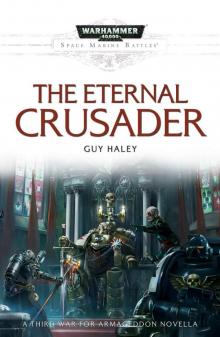 The Eternal Crusader - Guy Haley
The Eternal Crusader - Guy Haley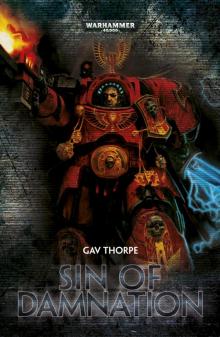 Sin of Damnation - Gav Thorpe
Sin of Damnation - Gav Thorpe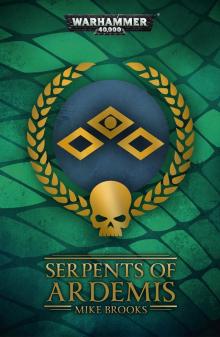 Serpents of Ardemis - Mike Brooks
Serpents of Ardemis - Mike Brooks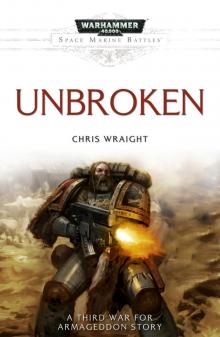 Unbroken - Chris Wraight
Unbroken - Chris Wraight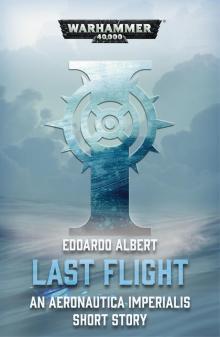 Last Flight - Edoardo Albert
Last Flight - Edoardo Albert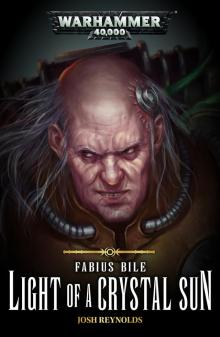 Light of a Crystal Sun - Josh Reynolds
Light of a Crystal Sun - Josh Reynolds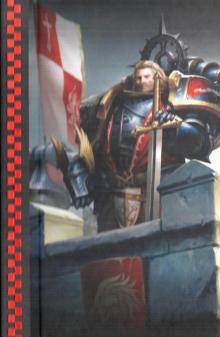 Lion El'Jonson- Lord of the First - David Guymer
Lion El'Jonson- Lord of the First - David Guymer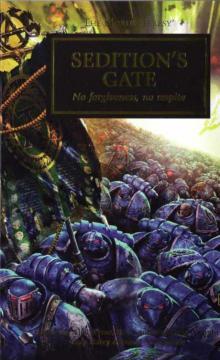 Sedition's Gate - Nick Kyme & Chris Wraight
Sedition's Gate - Nick Kyme & Chris Wraight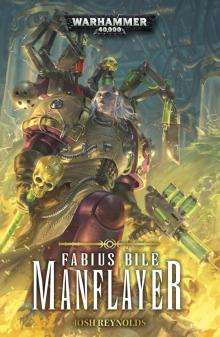 Manflayer - Josh Reynolds
Manflayer - Josh Reynolds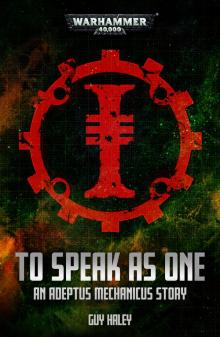 To Speak as One - Guy Haley
To Speak as One - Guy Haley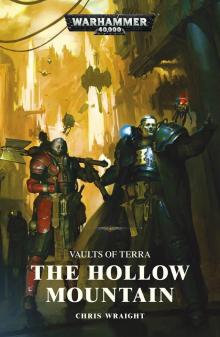 Vaults of Terra- The Hollow Mountain - Chris Wraight
Vaults of Terra- The Hollow Mountain - Chris Wraight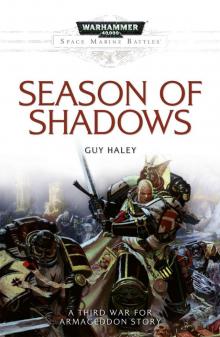 Season of Shadows - Guy Haley
Season of Shadows - Guy Haley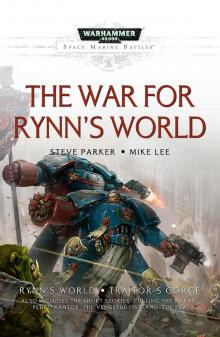 The War for Rynn's World - Steve Parker & Mike Lee
The War for Rynn's World - Steve Parker & Mike Lee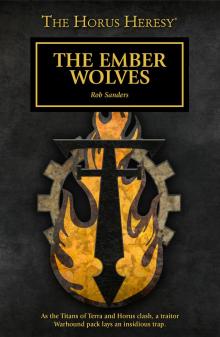 The Ember Wolves - Rob Sanders
The Ember Wolves - Rob Sanders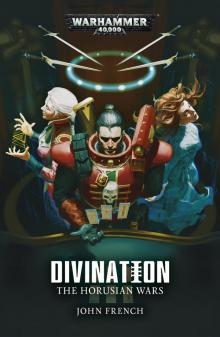 Divination - John French
Divination - John French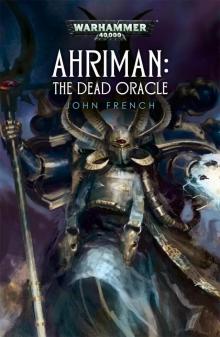 The Dead Oracle - John French
The Dead Oracle - John French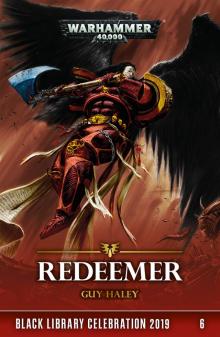 Redeemer - Guy Haley
Redeemer - Guy Haley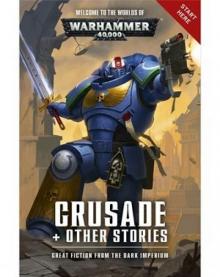 Crusade & Other Stories - Dan Abnett Et Al.
Crusade & Other Stories - Dan Abnett Et Al.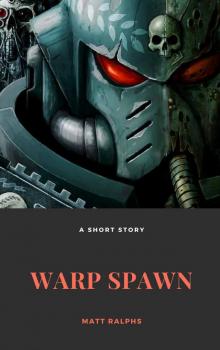 Warp Spawn - Matt Ralphs
Warp Spawn - Matt Ralphs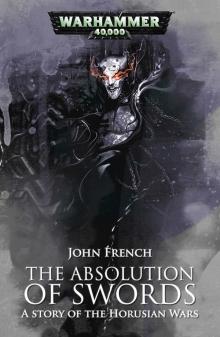 The Absolution of Swords - John French
The Absolution of Swords - John French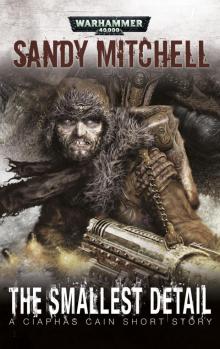 The Smallest Detail - Sandy Mitchell
The Smallest Detail - Sandy Mitchell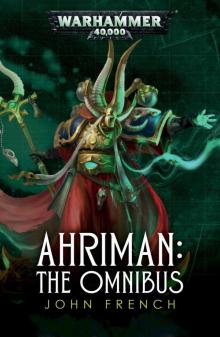 The Omnibus - John French
The Omnibus - John French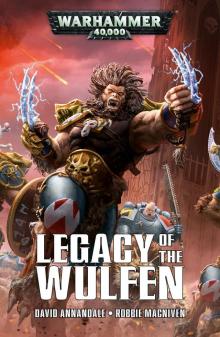 Legacy of the Wulfen - David Annandale & Robbie MacNiven
Legacy of the Wulfen - David Annandale & Robbie MacNiven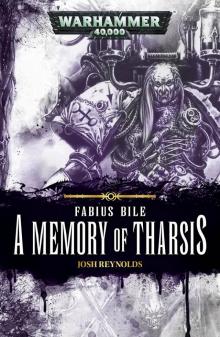 A Memory of Tharsis - Josh Reynolds
A Memory of Tharsis - Josh Reynolds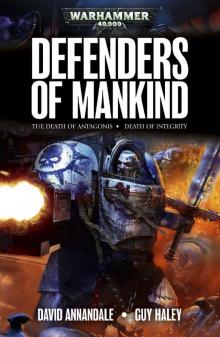 Defenders of Mankind - David Annandale & Guy Haley
Defenders of Mankind - David Annandale & Guy Haley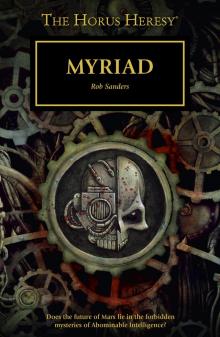 Myriad - Rob Sanders
Myriad - Rob Sanders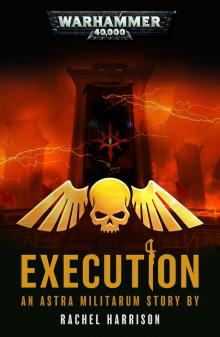 Execution - Rachel Harrison
Execution - Rachel Harrison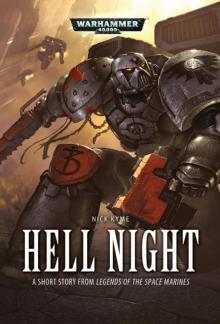 Hell Night - Nick Kyme
Hell Night - Nick Kyme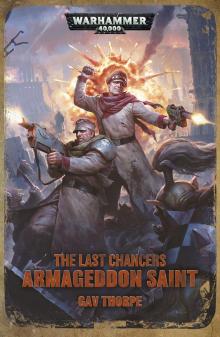 Armageddon Saint - Gav Thorpe
Armageddon Saint - Gav Thorpe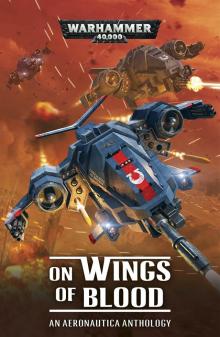 On Wings of Blood
On Wings of Blood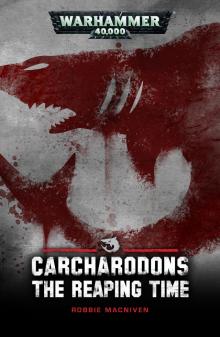 The Reaping Time - Robbie MacNiven
The Reaping Time - Robbie MacNiven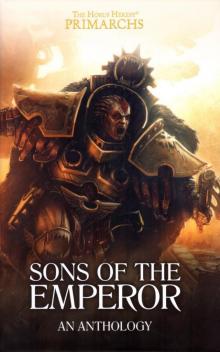 Sons of the Emperor
Sons of the Emperor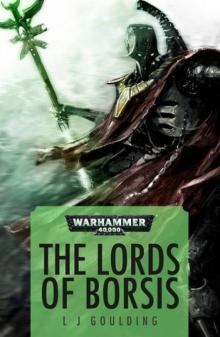 The Lords of Borsis - L J Goulding
The Lords of Borsis - L J Goulding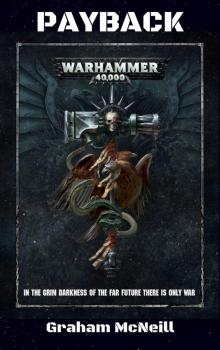 Payback - Graham McNeill
Payback - Graham McNeill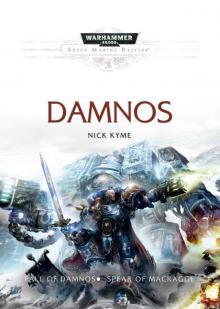 Damnos - Nick Kyme
Damnos - Nick Kyme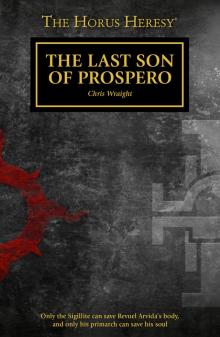 The Last Son of Prospero - Chris Wraight
The Last Son of Prospero - Chris Wraight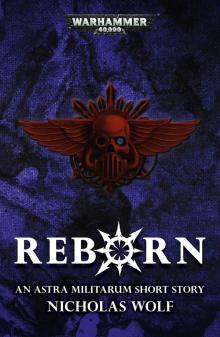 Reborn - Nicholas Wolf
Reborn - Nicholas Wolf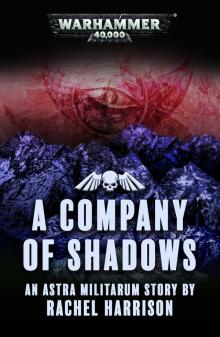 A Company of Shadows - Rachel Harrison
A Company of Shadows - Rachel Harrison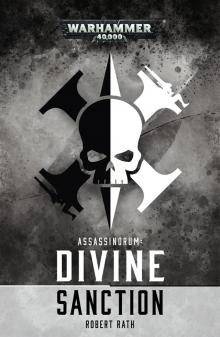 Assassinorum- Divine Sanction - Robert Rath
Assassinorum- Divine Sanction - Robert Rath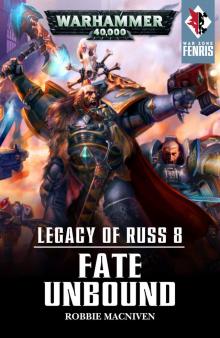 Fate Unbound - Robbie MacNiven
Fate Unbound - Robbie MacNiven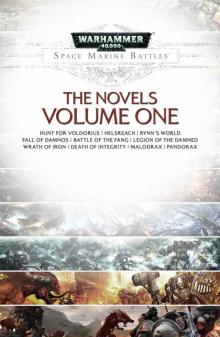 Space Marine Battles - the Novels Volume 1
Space Marine Battles - the Novels Volume 1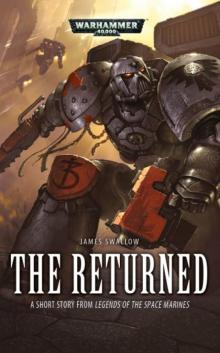 The Returned - James Swallow
The Returned - James Swallow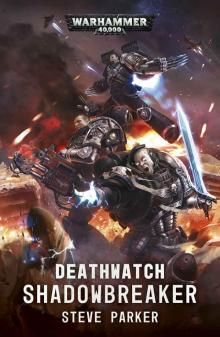 Shadowbreaker - Steve Parker
Shadowbreaker - Steve Parker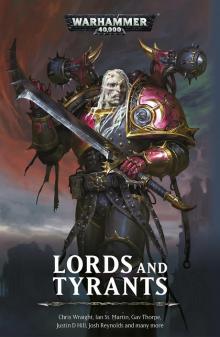 Lords and Tyrants
Lords and Tyrants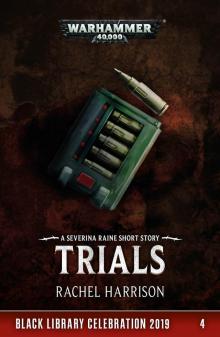 Trials - Rachel Harrison
Trials - Rachel Harrison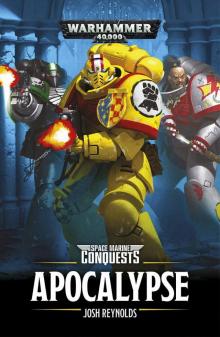 Apocalypse - Josh Reynolds
Apocalypse - Josh Reynolds The labyrinth - Richard Ford
The labyrinth - Richard Ford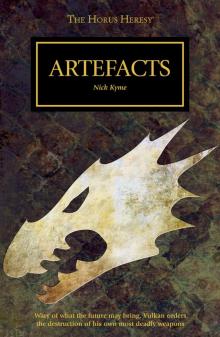 Artefacts - Nick Kyme
Artefacts - Nick Kyme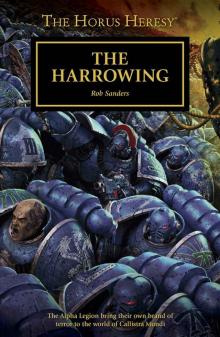 The Harrowing - Rob Sanders
The Harrowing - Rob Sanders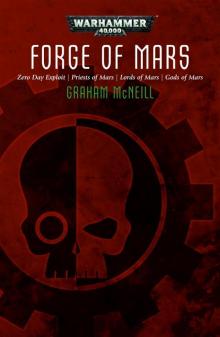 Forge of Mars - Graham McNeill
Forge of Mars - Graham McNeill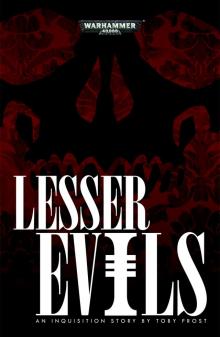 Lesser Evils - Toby Frost
Lesser Evils - Toby Frost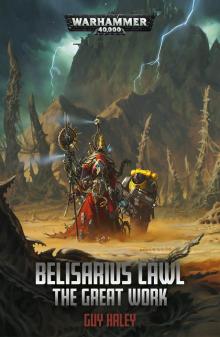 Belisarius Cawl- the Great Work - Guy Haley
Belisarius Cawl- the Great Work - Guy Haley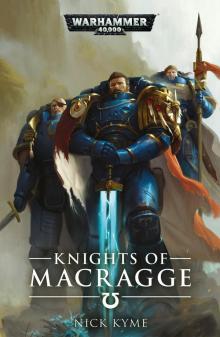 Knights of Macragge - Nick Kyme
Knights of Macragge - Nick Kyme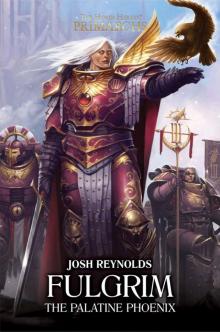 Fulgrim- The Palatine Phoenix - Josh Reynolds
Fulgrim- The Palatine Phoenix - Josh Reynolds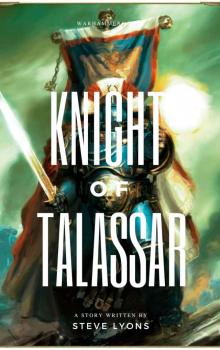 Knight of Talassar - Steve Lyons
Knight of Talassar - Steve Lyons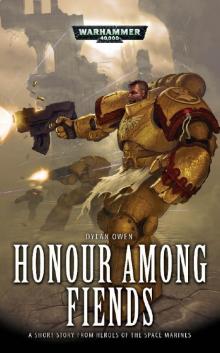 Honour Among Fiends - Dylan Owen
Honour Among Fiends - Dylan Owen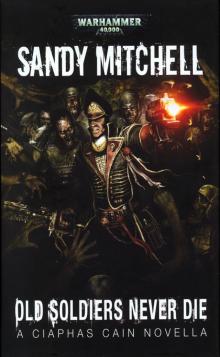 Old Soldiers Never Die - Sandy Mitchell
Old Soldiers Never Die - Sandy Mitchell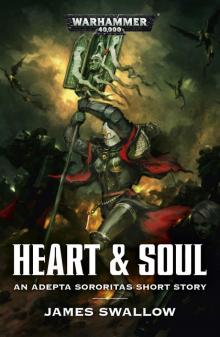 Heart & Soul - James Swallow
Heart & Soul - James Swallow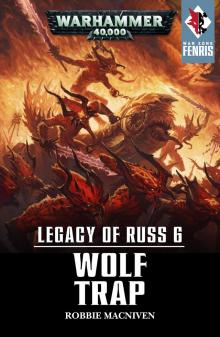 Wolf Trap - Robbie MacNiven
Wolf Trap - Robbie MacNiven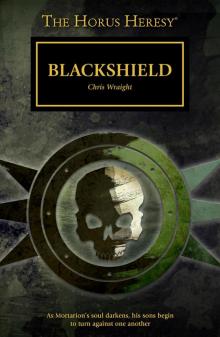 Blackshield - Chris Wraight
Blackshield - Chris Wraight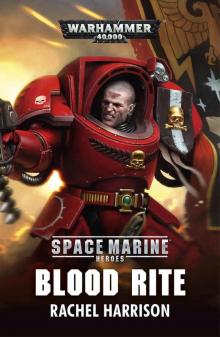 Blood Rite - Rachel Harrison
Blood Rite - Rachel Harrison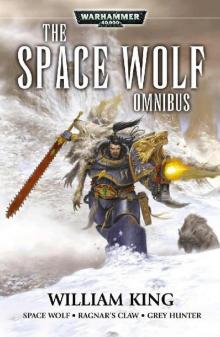 The Space Wolf Omnibus - William King
The Space Wolf Omnibus - William King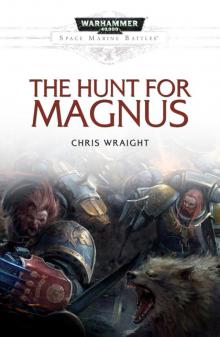 The Hunt for Magnus - Chris Wraight
The Hunt for Magnus - Chris Wraight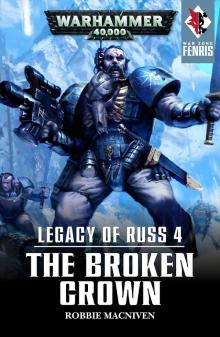 The Broken Crown - Robbie MacNiven
The Broken Crown - Robbie MacNiven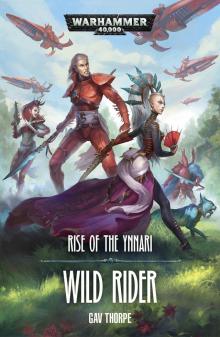 Wild Rider - Gav Thorpe
Wild Rider - Gav Thorpe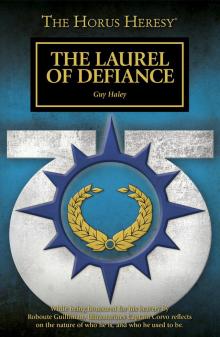 The Laurel of Defiance - Guy Haley
The Laurel of Defiance - Guy Haley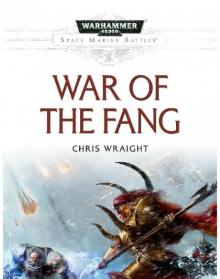 War of the Fang - Chris Wraight
War of the Fang - Chris Wraight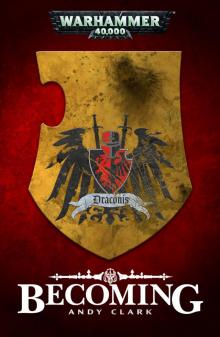 Becoming - Andy Clark
Becoming - Andy Clark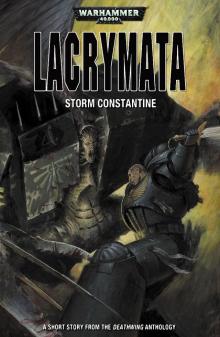 Lacrymata - Storm Constantine
Lacrymata - Storm Constantine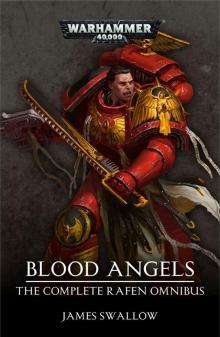 Blood Angels - The Complete Rafen Omnibus - James Swallow
Blood Angels - The Complete Rafen Omnibus - James Swallow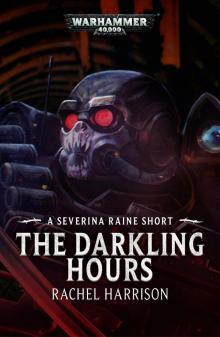 The Darkling Hours - Rachel Harrison
The Darkling Hours - Rachel Harrison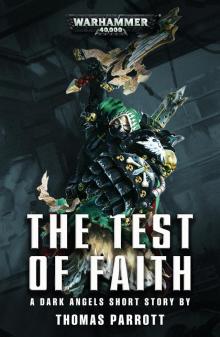 The Test of Faith - Thomas Parrott
The Test of Faith - Thomas Parrott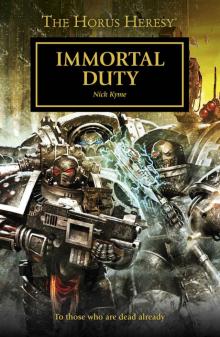 Immortal Duty - Nick Kyme
Immortal Duty - Nick Kyme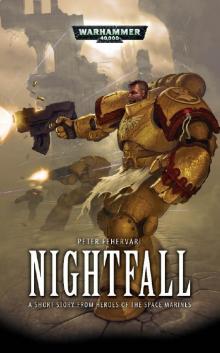 Nightfall - Peter Fehervari
Nightfall - Peter Fehervari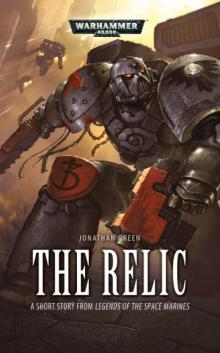 The Relic - Jonathan Green
The Relic - Jonathan Green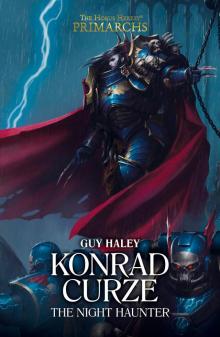 Konrad Curze the Night Haunter - Guy Haley
Konrad Curze the Night Haunter - Guy Haley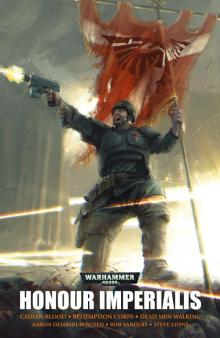 Honour Imperialis - Aaron Dembski-Bowden
Honour Imperialis - Aaron Dembski-Bowden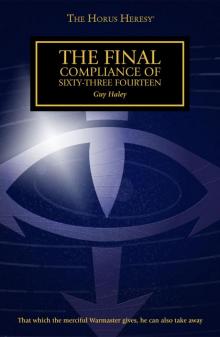 The Final Compliance of Sixty-Three Fourteen - Guy Haley
The Final Compliance of Sixty-Three Fourteen - Guy Haley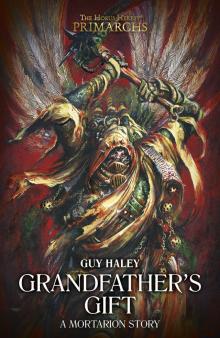 Grandfather’s Gift - Guy Haley
Grandfather’s Gift - Guy Haley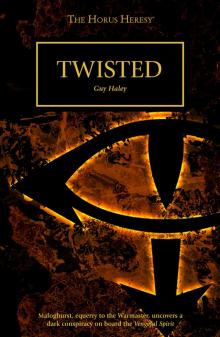 Twisted - Guy Haley
Twisted - Guy Haley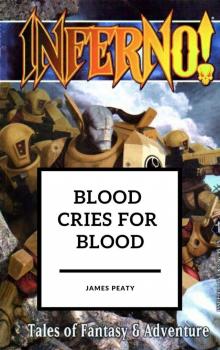 Blood Cries for Blood - James Peaty
Blood Cries for Blood - James Peaty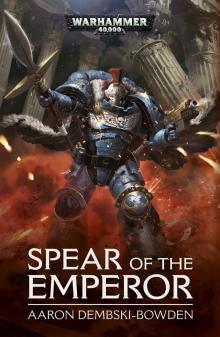 Spear of the Emperor - Aaron Dembski-Bowden
Spear of the Emperor - Aaron Dembski-Bowden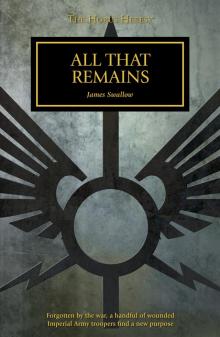 All That Remains - James Swallow
All That Remains - James Swallow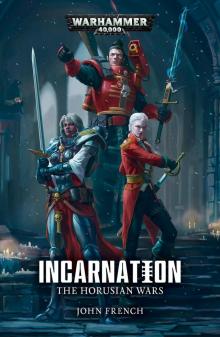 Incarnation - John French
Incarnation - John French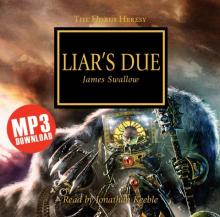 Liar's Due - Ben Swallow
Liar's Due - Ben Swallow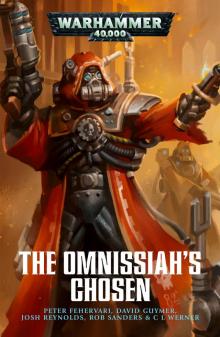 The Omnissiah's Chosen - Peter Fehervari
The Omnissiah's Chosen - Peter Fehervari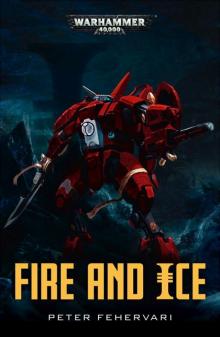 Fire and Ice - Peter Fehervari
Fire and Ice - Peter Fehervari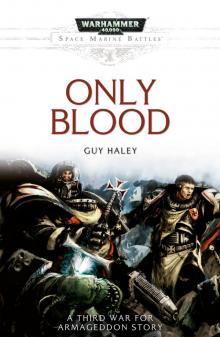 Only Blood - Guy Haley
Only Blood - Guy Haley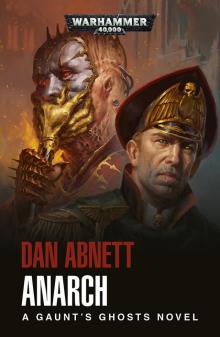 Anarch - Dan Abnett
Anarch - Dan Abnett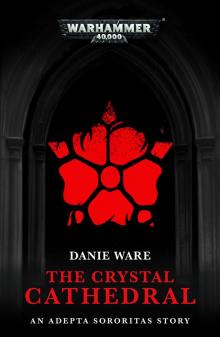 The Crystal Cathedral - Danie Ware
The Crystal Cathedral - Danie Ware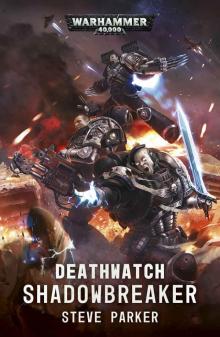 Shadowbreaker
Shadowbreaker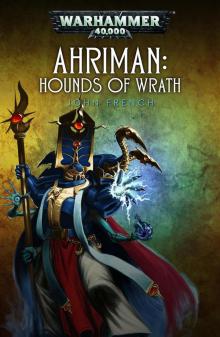 Hounds of Wrath - John French
Hounds of Wrath - John French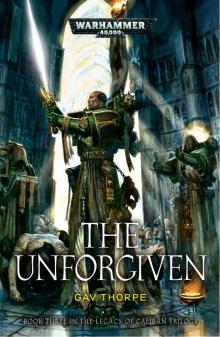 The Unforgiven - Gav Thorpe
The Unforgiven - Gav Thorpe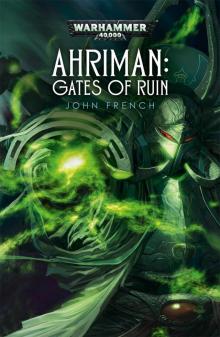 Gates of Ruin - John French
Gates of Ruin - John French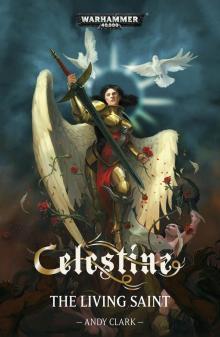 Celestine - Andy Clark
Celestine - Andy Clark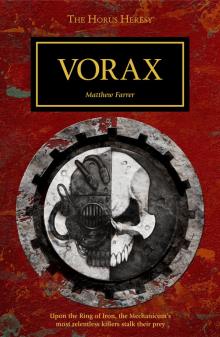 Vorax - Matthew Farrer
Vorax - Matthew Farrer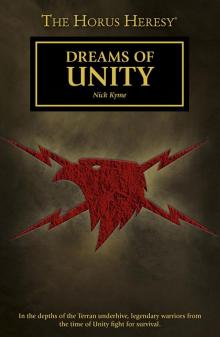 Dreams of Unity - Nick Kyme
Dreams of Unity - Nick Kyme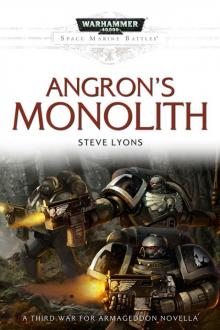 Angron's Monolith - Steve Lyons
Angron's Monolith - Steve Lyons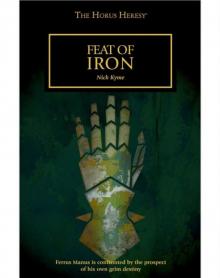 Feat of Iron - Nick Kyme
Feat of Iron - Nick Kyme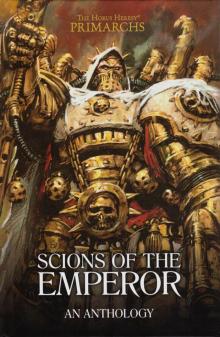 Scions of the Emperor
Scions of the Emperor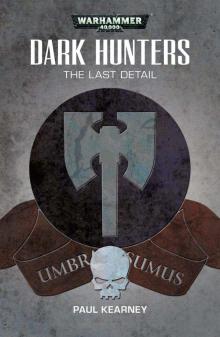 The Last Detail - Paul Kearney
The Last Detail - Paul Kearney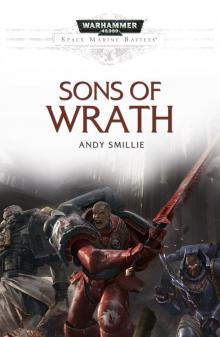 Sons of Wrath - Andy Smillie
Sons of Wrath - Andy Smillie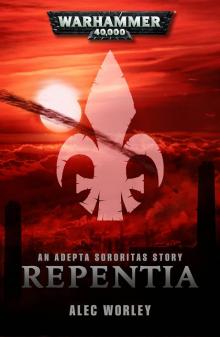 Repentia - Alec Worley
Repentia - Alec Worley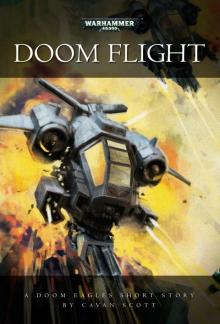 Doom Flight - Cavan Scott
Doom Flight - Cavan Scott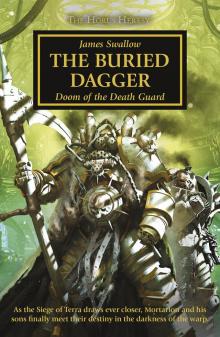 The Buried Dagger - James Swallow
The Buried Dagger - James Swallow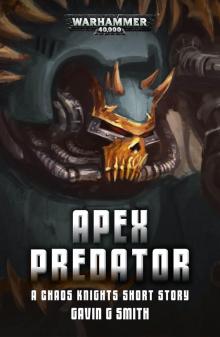 Apex Predator - Gavin G Smith
Apex Predator - Gavin G Smith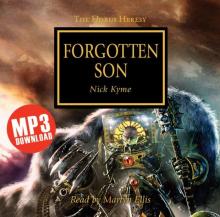 Forgotten Sons - Nick Kyme
Forgotten Sons - Nick Kyme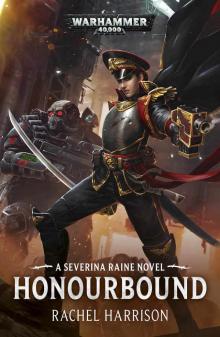 Honourbound - Rachel Harrison
Honourbound - Rachel Harrison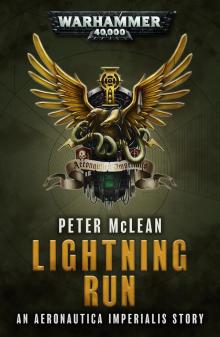 Lightning Run - Peter McLean
Lightning Run - Peter McLean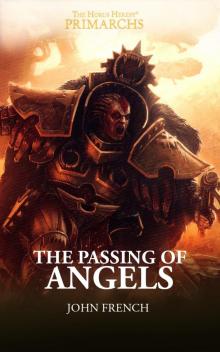 The Passing of Angels - John French
The Passing of Angels - John French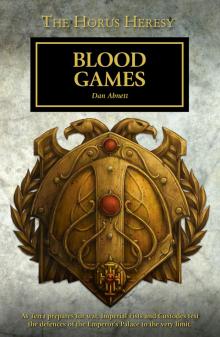 Blood Games - Dan Abnett
Blood Games - Dan Abnett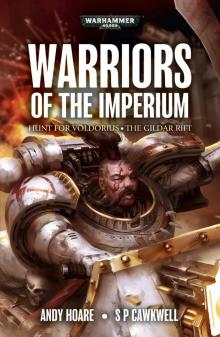 Warriors of the Imperium - Andy Hoare & S P Cawkwell
Warriors of the Imperium - Andy Hoare & S P Cawkwell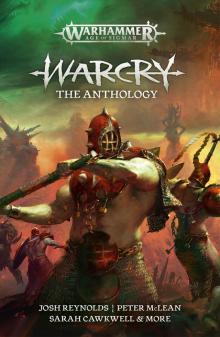 Warcry
Warcry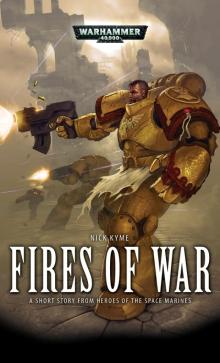 Fires of War - Nick Kyme
Fires of War - Nick Kyme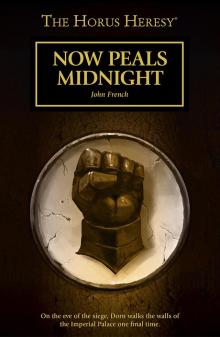 Now Peals Midnight - John French
Now Peals Midnight - John French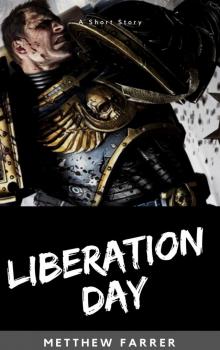 Liberation Day - Matthew Farrer
Liberation Day - Matthew Farrer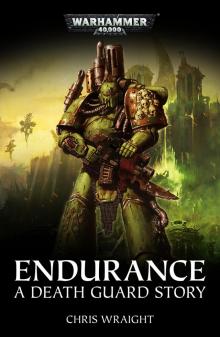 Endurance - Chris Wraight
Endurance - Chris Wraight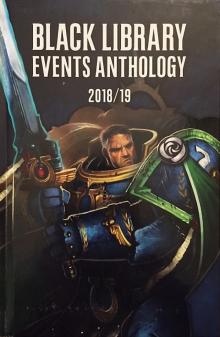 Black Library Events Anthology 2018-19
Black Library Events Anthology 2018-19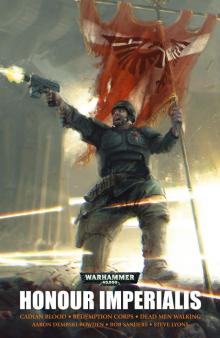 Honour Imperialis - Braden Campbell & Aaron Dembski-Bowden & Chris Dows & Steve Lyons & Rob Sanders
Honour Imperialis - Braden Campbell & Aaron Dembski-Bowden & Chris Dows & Steve Lyons & Rob Sanders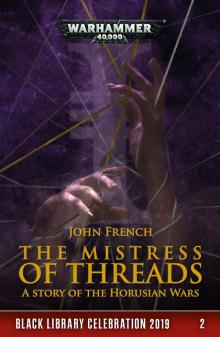 The Mistress of Threads - John French
The Mistress of Threads - John French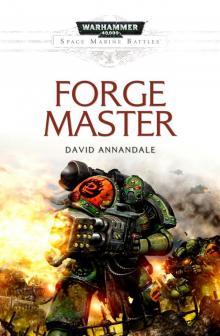 Forge Master - David Annandale
Forge Master - David Annandale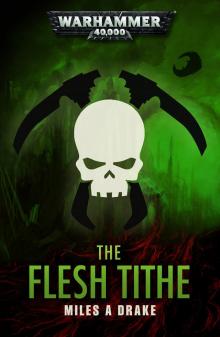 The Flesh Tithe - Miles A Drake
The Flesh Tithe - Miles A Drake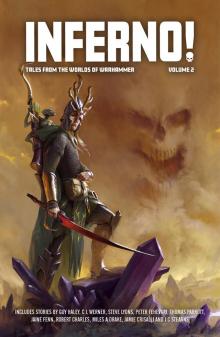 Inferno Volume 2 - Guy Haley
Inferno Volume 2 - Guy Haley Mercy of the Dragon - Nick Kyme
Mercy of the Dragon - Nick Kyme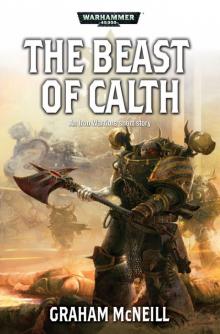 The Beast of Calth - Graham McNeill
The Beast of Calth - Graham McNeill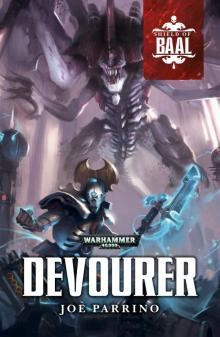 Devourer - Joe Parrino
Devourer - Joe Parrino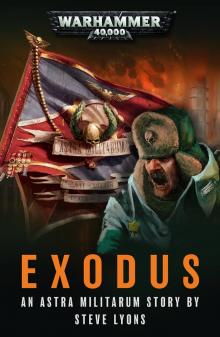 Exodus - Steve Lyons
Exodus - Steve Lyons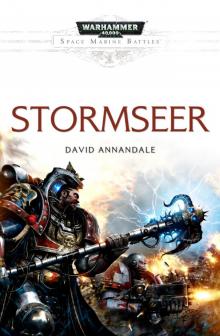 Stormseer - David Annandale
Stormseer - David Annandale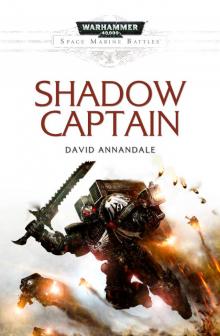 Shadow Captain - David Annandale
Shadow Captain - David Annandale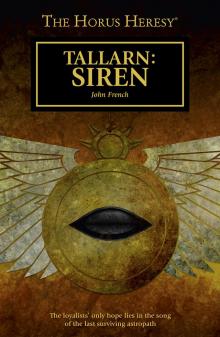 Tallarn- Siren - John French
Tallarn- Siren - John French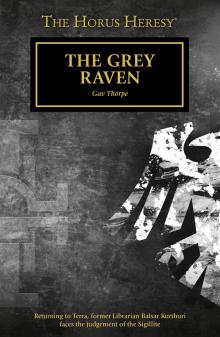 The Grey Raven - Gav Thorpe
The Grey Raven - Gav Thorpe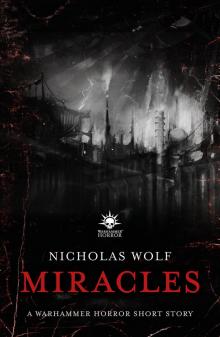 Miracles - Nicholas Wolf
Miracles - Nicholas Wolf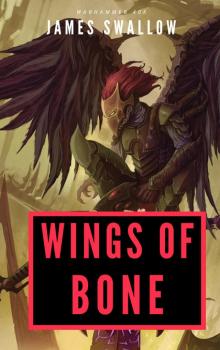 Wings of Bone - James Swallow
Wings of Bone - James Swallow